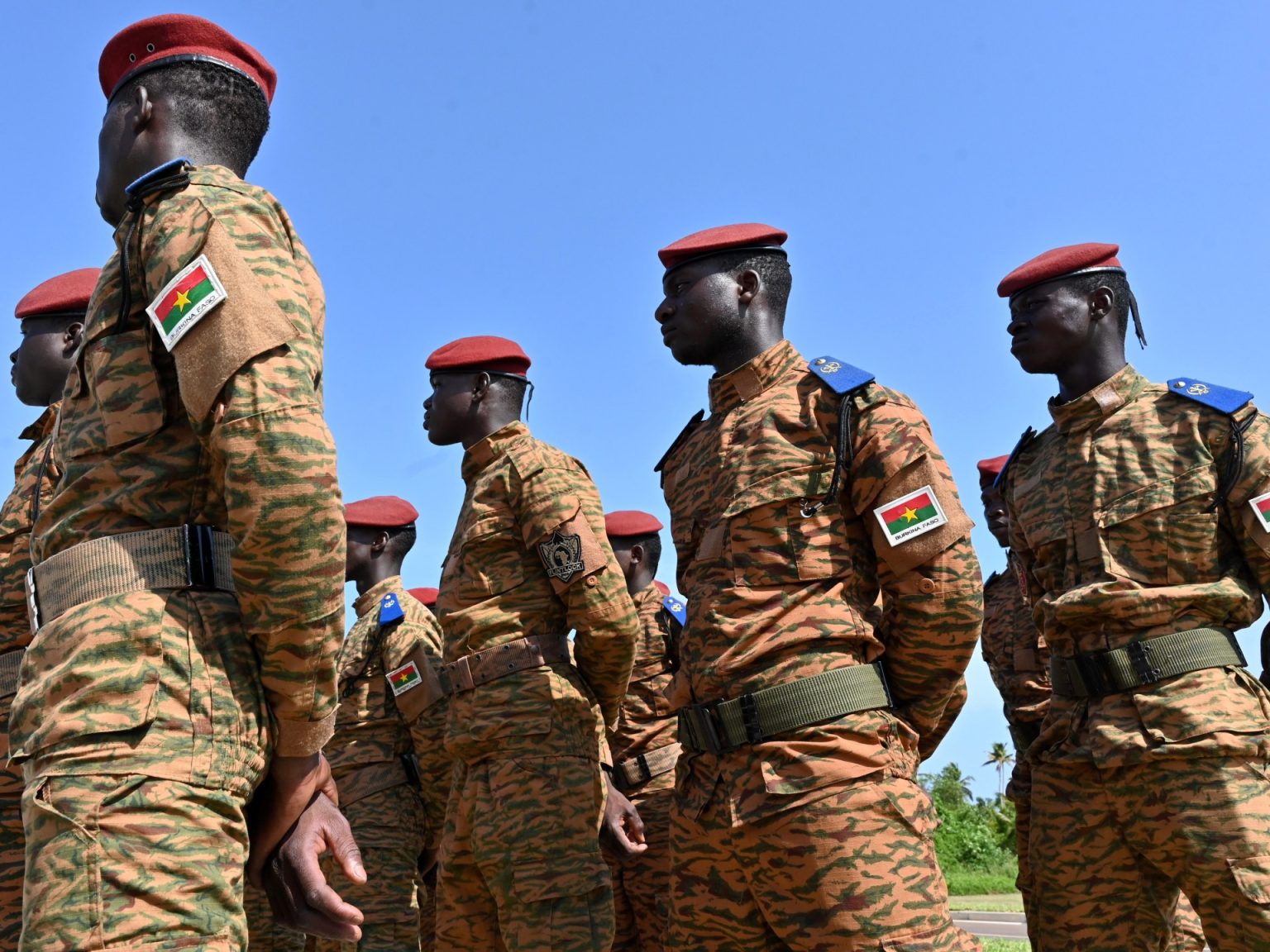Recent shootings in Ouagadougou, Burkina Faso, including one at the presidential palace and another at a public broadcaster, have raised concerns about a possible mutiny in the country amid a growing security crisis. Military leader Captain Ibrahim Traore, who seized power in a coup in 2022, promised to secure the country, hold elections, and transition to democracy. However, a recent announcement of a five-year extension of the transition due to insecurity has sparked criticism and questions about Traore’s control.
On June 11, fighters of the Jama’at Nusrat al-Islam wal-Muslimin (JNIM) launched a devastating attack on Burkinabe forces, resulting in the deaths of dozens of soldiers and capturing of others. This was considered one of the worst setbacks for the military, highlighting the ongoing battles with armed groups in the country’s northeast region. The attack amplified dissatisfaction within the army towards Traore’s government, leading to speculation about internal threats and potential mutiny.
Following the attack on the military base, gunshots were heard at the national television network’s premises in Ouagadougou, near the presidential palace. Two people were injured in the attack, which Traore later claimed was friendly fire from security forces. Rumors of dissent within the army surfaced, fueled by the lack of government response to the soldiers’ deaths and Traore’s brief disappearance. Despite refuting mutiny claims, analysts warn that such attacks could lead to rebellion and increased crackdowns on perceived enemies.
Under Traore’s leadership, insecurity in Burkina Faso has worsened, leading to increased violence and displacement of thousands of people. The government’s distancing from France, its former colonial ruler, in favor of closer ties with Russia has raised concerns about the effectiveness of military strategies and the recruitment of untrained volunteers. Critics argue that Traore’s pursuit of total war has led to a surge in deaths and displacement, with negotiations with armed groups seemingly off the table.
The humanitarian situation in Burkina Faso is dire, with thousands displaced, schools closed, and millions facing food shortages and malnutrition due to insecurity, high inflation, and a challenging climate. Funding appeals have fallen short, leaving aid groups struggling to meet the needs of the population, making Burkina Faso one of the most neglected crises in the world. As the country grapples with internal strife, the government’s ability to address the security crisis and protect its citizens remains uncertain.


